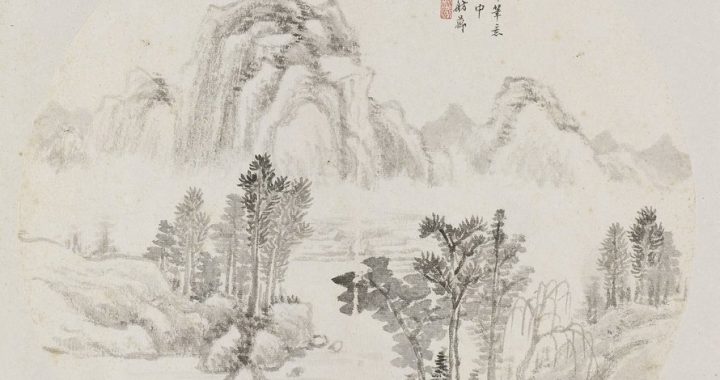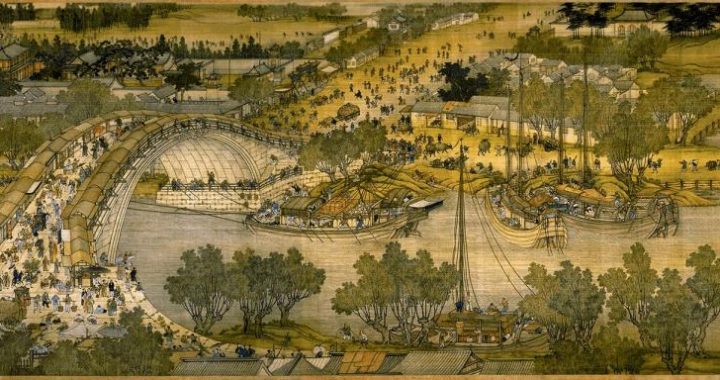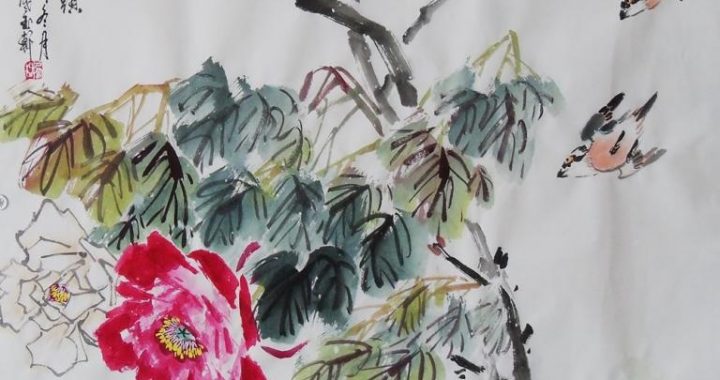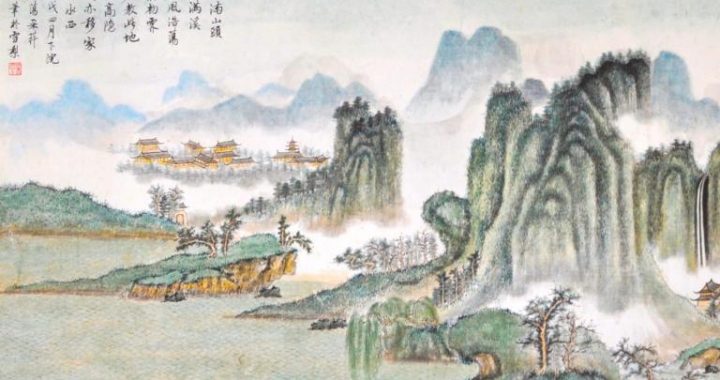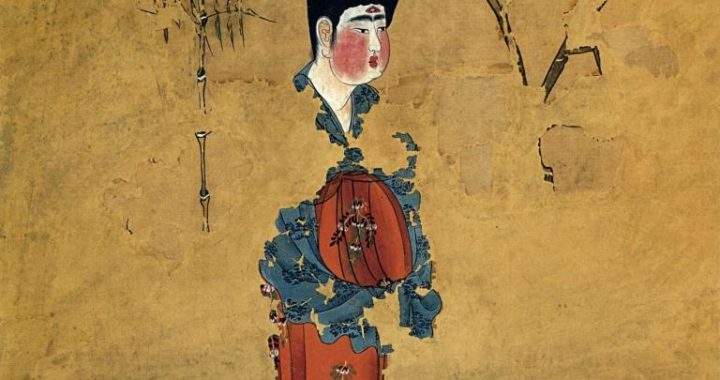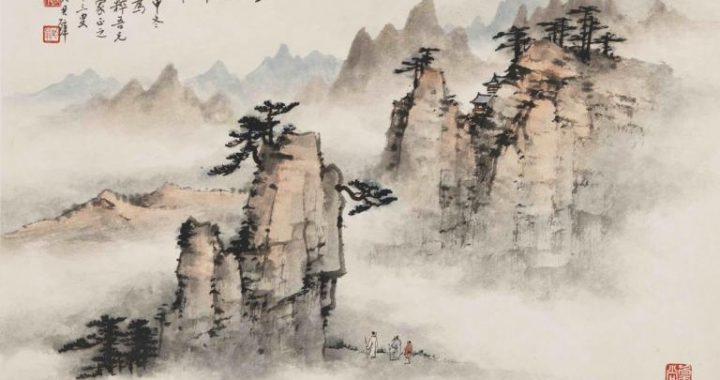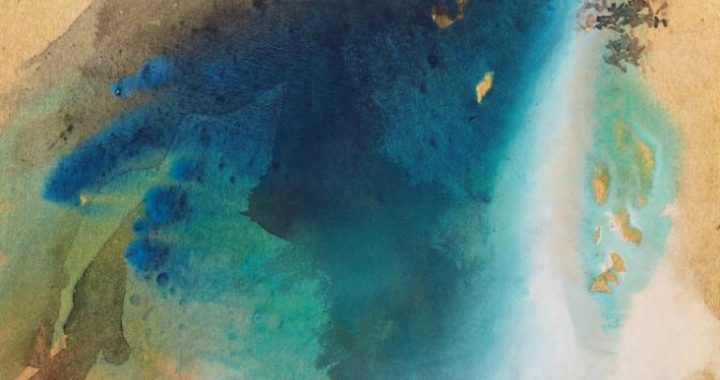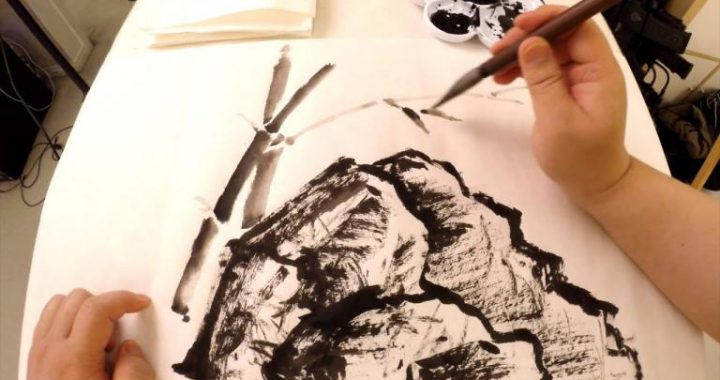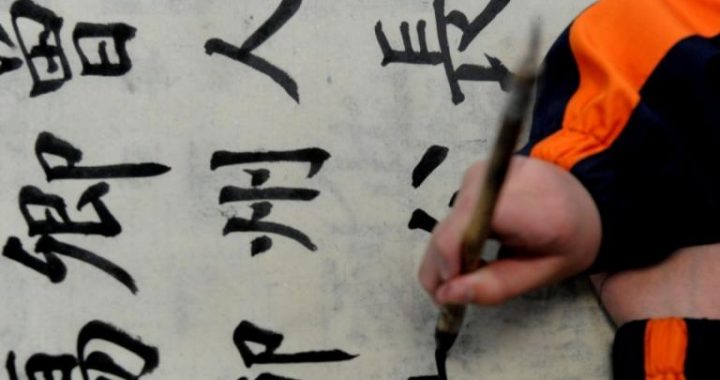Kungqu and Classical Culture
9 min readTo a certain extent,the development of Kunqu opera reflected the evolution of mainstream Chinese culture.The traditional Chinese arts are comprised of the three main branches of palace arts,the art of the literati,and folk arts.Each of these was associated with a corresponding cultural trend.The art of the literati had many elements in common with palace art and culture.The intimate relationship be-tween the literati and the palace gave rise to China’s classical culture,which exerted a dominant influ-ence on Chinese society.Kunqu opera of the Ming and Qing dynasties represented the union of palace culture,traditional opera,and the art of the literati,embodying the ideology of China’s ruling class and cultural elite.
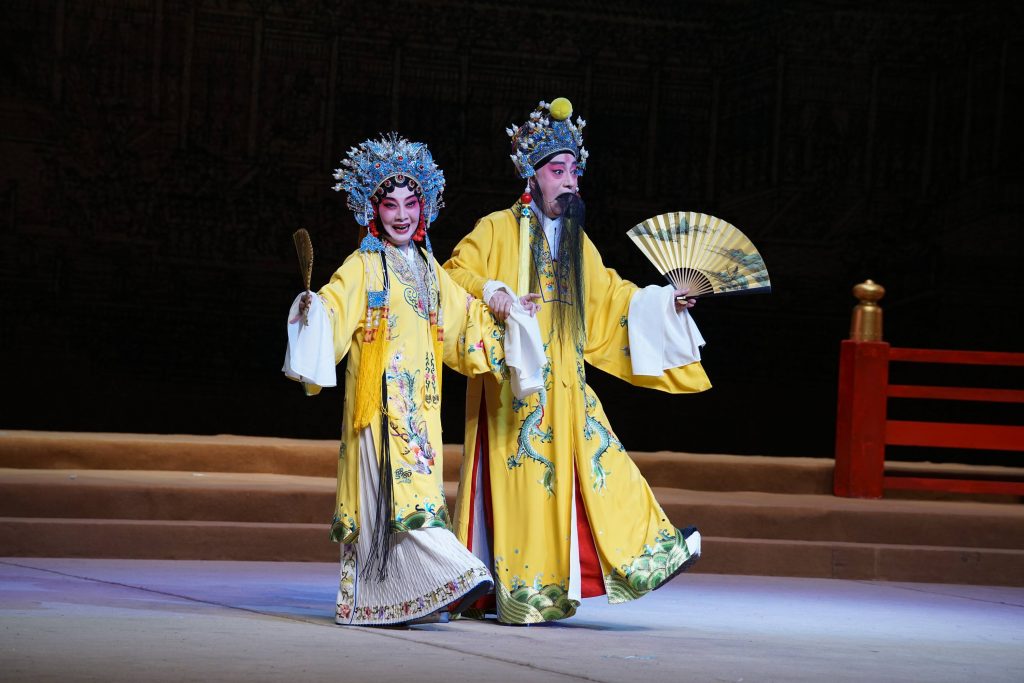
Theater at Gong Wang Fu(Prince Gong’s Mansion)
The writers and scholars who comprised China’s literati were of vital importance to the developmentof Kunqu opera during its early and middle periods.It may be said that without their contributions,Kunqu would not have flourished as it did.Starting during the mid-Ming Dynasty,Kunqu opera be-came an indispensable part of the daily life of the China’s cultural elite.Members of the gentry invested large amounts of money,materials,and energy into producing and enjoying Kunqu opera.For these people,Kunqu was as important to their elegant lifestyle as their pursuit of the most exquisite food and clothing and their passion for riding and hunting,collecting antiques,creating gardens,and creating poetry and art.
Beijing theater;Qing Dynasty(1636-1911AD)
The literati participated in the creation of Kungu opera for a number of reasons.
First,they used Kunqu as a propaganda tool to spread traditional Confucian ideology and their personal philosophies.Traditional Chinese art and literature contains many works created specifically for thepurpose of expressing ideological concepts.These works fall into two major categories.The first con-sists primarily of lectures on traditional morality,while the second includes expositions of individual thinking.Both types of writing may be found in the Kunqu canon.A classic traditional morality play is Yixia Ji(Legend of the Swordsman)by Shen Jing(1553-1610 AD).Individual thinking is represented by the influential work Mudanting(The Peony Pavilion)by Tang Xianzu(1550-1616 AD).Yixia Ji(Legend of the Swordsman)extols the virtuous behaviorof hero Wu Song as he opposes evil and upholds justice,encouraging the audience to collectively maintain high ethical standards and renew the traditional Confucian social system.Tang Xianzu’s Mudanting(The Peony Pavilion),on the other hand,is a bold critique of the traditional feudal system and the bonds it places on personal freedom.This work openlyasserts that feudal morality is not the center of human existence,but that people should rather follow their hearts.The author holds that although no one knows from what source true emotion springs,love is so deep and implacable that people will live or die for it,and after they die,be once again reborn.
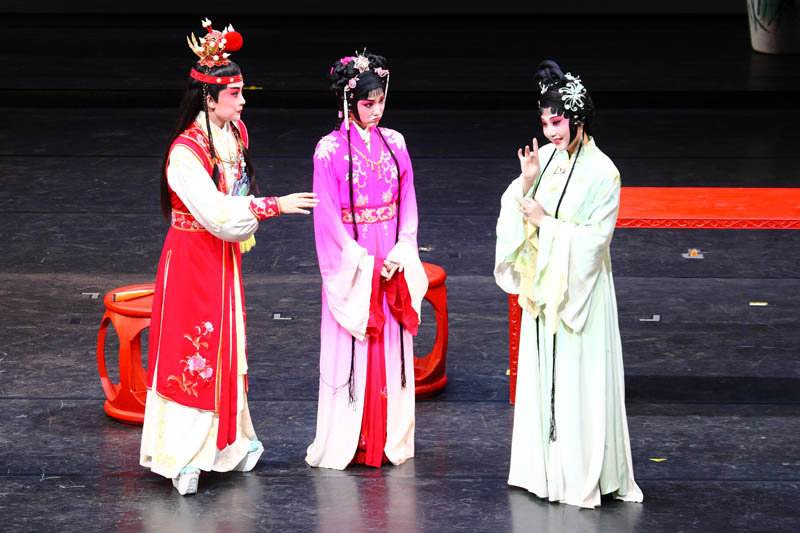
Despite Shen Jing and Tang Xianzu’s philosophical differences,they both utilized their writing as an important avenue to disseminate their ideas.
Kunqu opera Gongchen Yan (Feasting the Meritorious Oficial)
Second, the literati used Kunqu as a means of personal catharsis,a tool for sublimating unattainable dreams and desires. Educated members of the cultural elite who were involved with Kunqu generally were highly logical in their approach to life. When they encountered difficulties or frustrations in real life, they naturally turned to writing or performing Kunqu opera to vent their pain and dissatisfaction.
For them, Kunqu was a means of expressing personal feelings. Qing Dynasty dramatist You Tong(1618-1704AD) sat for the civil service examinations many times during the first half of his life, but never was successful. He wrote the Kunqu opera Jun Tian Yue(Passing the Test into the Ranks of Heaven)as an expression of his indignation, mercilessly satirizing the official examiners. The famous Qing Dynasty poet Huang Jingren(1749-1783 AD) faced many difficulties in his life, and was often quite depressed. He often took to the stage to perform Kunqu opera, roaring with laughter or crying bitterly as the plot required. In this way he was able to moderate his own emotions. The famous Qing Dynasty dramatist Li Yu(1611-1680 AD) once said that no matter how much grief and hardship people expe-rience, creating Kunqu will make them happier than anything in the world. They can let their imagi-nations soar as they transform themselves into characters in a play. They can be high ranking officials or famous personages, gain the favors of great beauties, possess unmatched genius, or even enter the ranks of immortals. Anything is possible in the world of Kunqu. These candid words, the result of the author’s own experience, clearly indicate that for many writers, Kunqu was an opportunity to escape into a world of dreams.
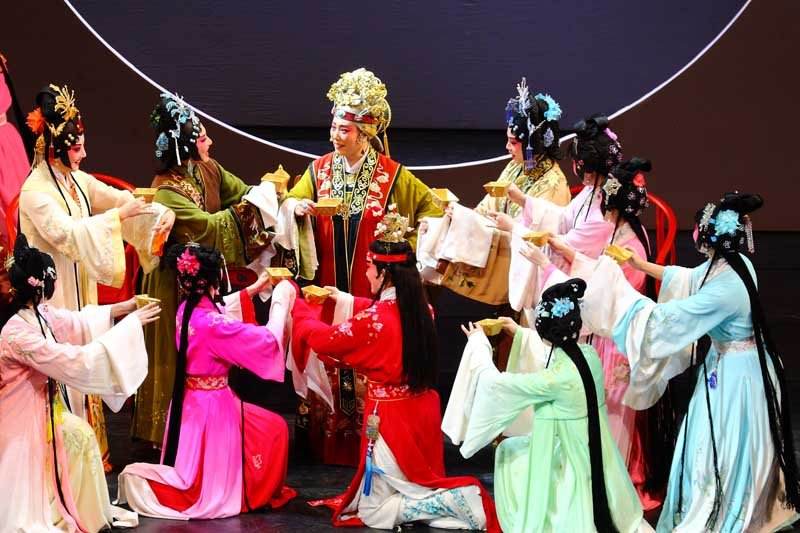
Third, the literati used Kunqu to transmit historical traditions and express their unique insights into Chinese history. Chinese scholars have a long tradition of writing historical works. In every dynasty, the government assigned groups of writers to compile official dynastic histories. At the same time, many members of the literati would also write historical pieces, in both formal and informal styles. With the emergence of various dramatic genres, some writers started to use the new narrative form to convey their own versions of history. This trend was particularly apparent in Kunqu opera. When Kong Shangren(1648-1718 AD) wrote Taohuashan(The Peach Blossom Fan), he declared that his goal was to make the audience understand the actual cause, time, and perpetrators of the downfall of the Ming Dynasty after three hundred years of entrenched political power. This type of historical awareness was present to a certain extent in many dramas, even those that were not specifically about historical pro-cesses. Changshengdian(The Palace of Eternity) by Hong Sheng(1645-1704 AD) is primarily the tragic love story of Emperor Tang Minghuangg and Yang Yuhuan. But many scenes also contain acute histor-ical critiques, articulating the author’s reflections on the political dissolution that occurred during the mid-Tang Dynasty.
Fourth, the literati used Kunqu to engage in politics and express their views on current affairs. Many of Kunqu operas of the Ming and Qing dynasties were written with great immediacy, portraying and commenting on important incidents as they happened. This was the characteristic way in which the literati made their political views known. An example is the fall from power of Prime Minister Yan Song(1480-1567 AD) during the Jiajing reign period(1522-1566 AD) of the Ming Dynasty. Almost as soon as the incident occurred, the Kunqu opera Mingfeng Ji(Legend of the Phoenix) was already being performed, depicting the victorious struggle of the upright official Yang Jisheng(1516-1555 AD) to depose the evil prime minister. It is told that the famous scholar Wang Shizhen(1526-1590 AD) invited a local official to attend a performance of the new opera with him. The lowly official had not yet heard the news about Yan Song’s removal. When he saw the opera daring to blatantly denounce the powerful prime minister, he was so shocked that he turned white with fright. In another story, early in the Qing Dynasty two officials who were in charge of the Jiangsu civil service examination were suspected of taking bribes. The candidates sitting for the exams were extremely disgruntled, and one of them im-mediately wrote a Kunqu opera about the situation. The opera was widely performed to great acclaim, and eventually even reached the ears of the Emperor. Of course, reality cannot be changed by a few operas. But drama can reflect popular opinion and give it a voice, reminding the ruling class that justice and truth still exist in the world.
Opera performance at temple fair; Qing Dynasty(1636-1911 AD)
Fifth, the literati used Kunqu as a vehicle to express their poetic and musical abilities, using art to proclaim their personal worth. The ability to write poetry was highly valued in ancient China. Virtually every educated person could produce a few lines on demand. Members of the literati who were superior poets rapidly gained wide renown. The rules of Kunqu writing were even more stringent than those of poetry. Not only did the arias have to be beautiful poetry and the dialogues and soliloquies elegant prose, they all had to be perfectly coordinated with the requirements of Kunqu melodies. The demands of writing Kunqu opera were incredibly challenging, attracting the most highly gifted and creative of the literati to the ranks of Kunqu dramatists. During the Ming-Qing period, almost every member of the literati dabbled in Kunqu writing to some extent.
Sixth, creating Kunqu provided the literati with both private entertainment and social interaction.
During the late Ming-early Qing period, establishing private Kunqu troupes was extremely fashionable among the literati and gentry. For them, directing rehearsals and enjoying performances was a form of personal gratification. Since Kunqu was a distinctive feature of the lifestyle of the cultural elite, it inevitably became inseparable from their social interactions. Marriages, funerals, birthday banquets, and meetings of friends all were occasions for performances by the host’s private Kunqu troupe. It was considered especially impressive if the opera was written or directed by the host. When members of the elite spent time together, they often quoted lines from the Kunqu arias they were all so familiarto show off their sophistication and sense of humor.
Theatrical hall; Qing Dynasty, Qianlong reign period(1736-1795 AD)
The artistic tastes of the literati of the Ming-Qing period deeply influenced the development of Kunqu opera, regardless of their reasons for participating in its creation. From stylistic structure, musical and lyrical standards, plot devices, and stage design to performance art and techniques, Kunqu opera was infused with the culture of China’s traditional literati. Their participation enabled Kunqu to evolve into a highly refined art form characterized by its elegant aesthetic, elevating it far beyond other forms of traditional and regional opera.
The influence of the literati on Kunqu was most evident in the areas of writing and performing. Incomparison with other forms of traditional opera, Kunqu opera stories were more meaningful and the librettos more elaborate. These highly poetic works have greatly enriched the artistic content of the Chinese language, forming a priceless cultural heritage that is still considered the pinnacle of literary achievement.
If Kunqu writing was the province of the literati, then Kunqu performing rested squarely on the shoulders of the performers. The literati generally did not take to the stage themselves, but rather com-municated their vision by training and directing Kunqu performers. Ruan Dacheng (1587-1646 AD), a politician of the late Ming Dynasty, was also a highly accomplished director of Kunqu opera. Whenconducting rehearsals of his private Kunqu troupe, he always expounded in detail on the meaning of the lyrics, the intention of the plot development, and the motivation and behavior of the characters. In this way, he led the performers to a deeper understanding of the opera and where they needed to focus their energies. As a result of his directing, Ruan Dacheng’s private Kunqu troupe was considered one of the best of its time. Kunqu performers were able to command higher fees because of the training and acclaim they received from the literati, and the literati gained greater respect when famous performers sought to perform in their troupes. Through this mutual interaction between performers and literati, Kunqu gradually matured as a performing art. Thanks to the participation of the literati, Kunqu opera developed into an elegant art form that embodied the values of China’s elite culture.
After the mid-Ming Dynasty, Kunqu opera started to be performed in the palace. However, it continued to retain its original folk characteristics for an extended period of time. The Qianlong reign period(1736-1795AD) of the Qing Dynasty was a time of great economic prosperity, and Chinese society entered a golden age. During this period the Qianlong Emperor,a great aficionado of Kunqu music, im-plemented comprehensive reforms of palace Kunqu opera. He ordered his ministers to create a body of new operas for the palace troupes to perform. Some of the new works were stories about figures associ-ated with traditional holidays or scenes of peace and celebration, while others expanded on traditional Kunqu operas. One such work was lengthened to over 200 scenes and took ten days to perform. The ap-pearance of these new operas marked the official arrival of Kunqu as a palace art. During the sixteenth year of the Qianlong Emperor’s reign(1751 AD),a huge theatrical production was held in honor of the Empress Dowager’s sixtieth birthday. Temporary stages decorated with colored lanterns, banners, and pennants were erected every few hundred paces within a ten kilometer radius of the imperial palace’s Xihuamen gate. All kinds of theatrical productions, including Kunqu opera, were held continuously forthe duration of the celebration. The performances were elegant, vast, opulent, and auspicious, offering an unparalleled display of imperial might. No longer was Kunqu opera merely an important element of the culture of the literati. It had also become an indispensable element of the culture of the imperial palace.
